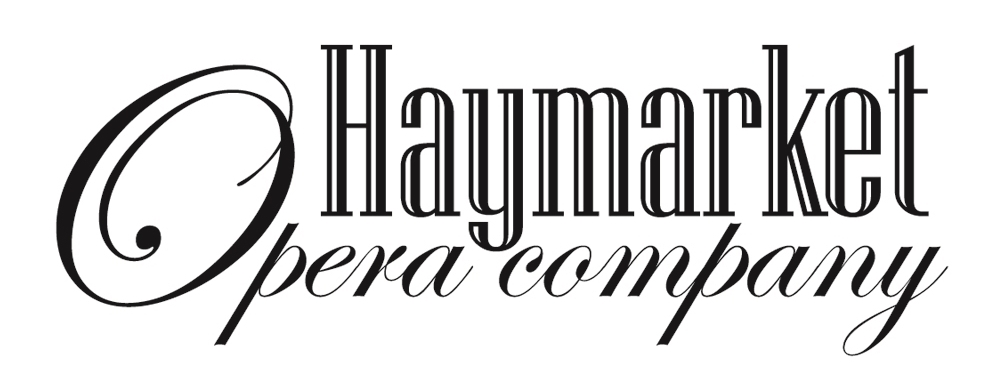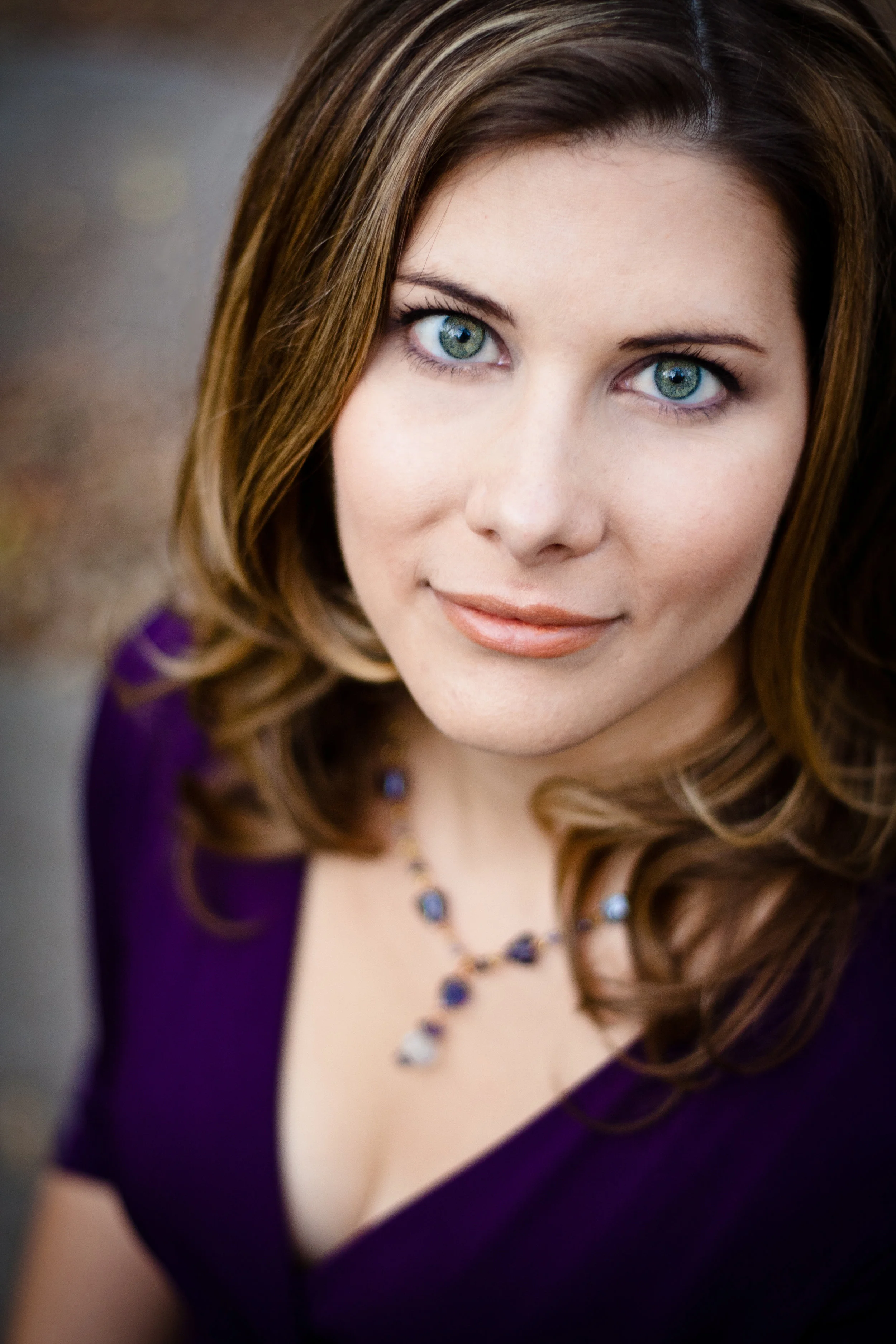Angela Young Smucker
Angela Young Smucker has earned praise for her “rich mezzo” (Chicago Tribune) and "powerful stage presence" (The Plain Dealer). Her performances in concert, stage, and chamber works have made her a highly versatile and sought-after artist. Ms. Smucker has been featured with Chicago Symphony Orchestra, Music of the Baroque, Oregon Bach Festival, Conspirare, Seraphic Fire, Haymarket Opera Company, Bach Collegium San Diego, Les Délices, Carmel Bach Festival, Newberry Consort, Leipzig Baroque Orchestra, Bach Institute at Valparaiso University, Santa Fe Desert Chorale, VocalEssence Ensemble Singers, and Third Coast Baroque. She has also had the distinct pleasure of working under the baton of such esteemed conductors as Helmuth Rilling, Hermann Max, Jane Glover, Phillip Brunelle, and Rubén Dubrovsky. Radio and television appearances include Garrison Keillor’s A Prairie Home Companion, WFMT’s Impromptu and Live from WFMT, and WTTW’s Chicago Tonight.
Ms. Smucker has been recognized for her “discerning interpretation” (SanDiego.com) of the works of J.S. Bach and continues to enjoy performing his masterpieces, ranging from the tour de force of his Mass in B Minor and the passions to his intimate chamber settings of motets and cantata arias. She was delighted to have the opportunity for perform such repertoire in the St. Thomas Church in Leipzig, where Bach served as music director from 1723 until his death in 1750.
In addition to performing, Ms. Smucker is currently pursuing her doctorate at Northwestern University Bienen School of Music and holds degrees from Valparaiso University – where she also served as instructor of voice for seven years – and the University of Minnesota. She serves as Executive Director of Third Coast Baroque.
Hear Angela as Amastre in Serse by George Frideric Handel - Get your tickets now!
What is the story of how you first came to love music and opera?
I started “playing” my babysitter’s piano when I was 4 or 5 years old. She recommended to my parents that I start taking lessons. This started my training and love affair with music. Singing in choirs and performing for audiences throughout my childhood reinforced and constantly reignited my passion for singing.
What is the biggest challenge you face as an artist?
Trying to fit in all the wonderful projects and pieces I’d like to do!
Do you have a favorite performer?
My first exposure to classical mezzo-sopranos was Cecilia Bartoli. She has been an inspiration in terms of the ferocity in her work, virtuosity, and passion for the art form. She is dedicated to this.
Do you have a favorite role? Aria? Opera?
I always enjoy a well-sung Mozart opera and have a particular fondness for Marcellina’s aria, which is often cut from Le nozze di Figaro. In this charming little piece, Mozart allows Marcellina to soften in character while embracing the vocal elegance he so deftly set.
Do you have any favorite books about music?
I love Willa Cather’s Song of the Lark. The story of Thea had to echoes my own: starting off as a pianist growing up in a rural area and eventually moving to Chicago while developing a singing career. Cather also paints a beautiful picture of turn-of-the-century Chicago with it’s “new” Orchestra Hall.
What else are you reading?
I seem to be devouring more books and articles than ever right now! As I am working on completing my doctorate at Northwestern University, I’m brushing up on all my music history – Medieval through the 21st century – in preparation for comprehensive exams. So that means digging into Taruskin’s The Oxford History of Western Music. Additionally, I am working on my final DMA lecture-recital, which will center around Vivaldi’s Orlando furioso. Among the many resources connected to that project, I’m reading Opera & Vivaldi which is a fantastic collection of essays from the symposium that surrounded the 1980 US premiere of Orlando furioso. And for fun, I’ve been reading The Unkillable Kitty O’Kane by Colin Falconer. What a fun story about a young Irish woman who survived the sinking of the Titanic and the Lusitania among other harrowing events!
Who are your favorite 17th and 18th century composers?
There are many composers that I love from this era, but I always go to Bach first. He was my gateway into Baroque music and historically informed performance. His music has so many beautiful layers and facets that illuminate the text, not only for the listener but for the singer as well! And while Bach’s writing can be quite challenging, it is never without grace.
If you were stranded on a desert island, is there one piece of music you would like to have with you?
Bach’s St. Matthew Passion. There’s drama, beauty, incredible instrumental colors. I can never get enough.
What do you love about HOC?
From the very beginning, I have always loved Craig’s willingness to explore quality repertoire that has been neglected far too long while bringing new life and charm to familiar favorites. We’re all discovering or re-discovering treasures that quickly become beloved gems.
Do you have a favorite memory from a past HOC event?
There have been so many wonderful moments over the years, but I think the most memorable has to be sharing the stage with my dog Peanut in Clori, Tirsi e Fileno (2012). It was a lot of trial and error to get that little guy to do what we wanted, but he was great! That is, until the second performance. During my final (lengthy) aria, little Peanut decided he no longer wanted to be onstage. So, he headed out into the audience to take a look around. As I sang a long melismatic passage on the word ritorna (return) – while at the same time wondering whether I should retrieve him from the house – one of the stage crew shooed him back onstage as if on cue. (Gotta love live theater!)
What is your favorite thing to do when you’re not making music?
I LOVE watching baseball. My husband and I start gearing up for the season after my birthday in mid-January by re-watching Ken Burns’ Baseball documentary and then get into spring training games before the official season kicks off. Once the radio broadcasts begin, it’s the constant soundtrack in our house through the end of the World Series.
What is the first thing you think about in the morning?
Coffee… Where is it? How much can I get? How quickly can I get it into my body?
Do you have any heroes/heroines?
I don’t think I have just one hero/heroine. The people I have come to admire are those who have worked tirelessly in their field in order to better themselves and their communities. Anytime a person can do something for the benefit of others is when they become a real hero.
What music do you listen to most often?
When I’m not studying scores/recordings, I usually have Neil Diamond playing (in all his sequined glory). I went to my first Neil Diamond concert with my mom when I was 7 years old, and I have been shameless hooked ever since.
If you had not entered into your current career what do you think you would have done instead?
Roller-derby. I dabble a bit (can you dabble in such a thing?), and my skater name is Baroque ‘n Bones.
What is your superhero power?
To magically finish everything on my to-do list.
How can we make opera more inclusive, accessible, or diverse?
The best way to make any art form more accessible is to help people understand what’s going on so they can get the most out of their experience. Understanding and appreciating art nurtures empathy and allows a person to see something from another perspective. Now, more than ever, we need to continue to encourage empathy.

